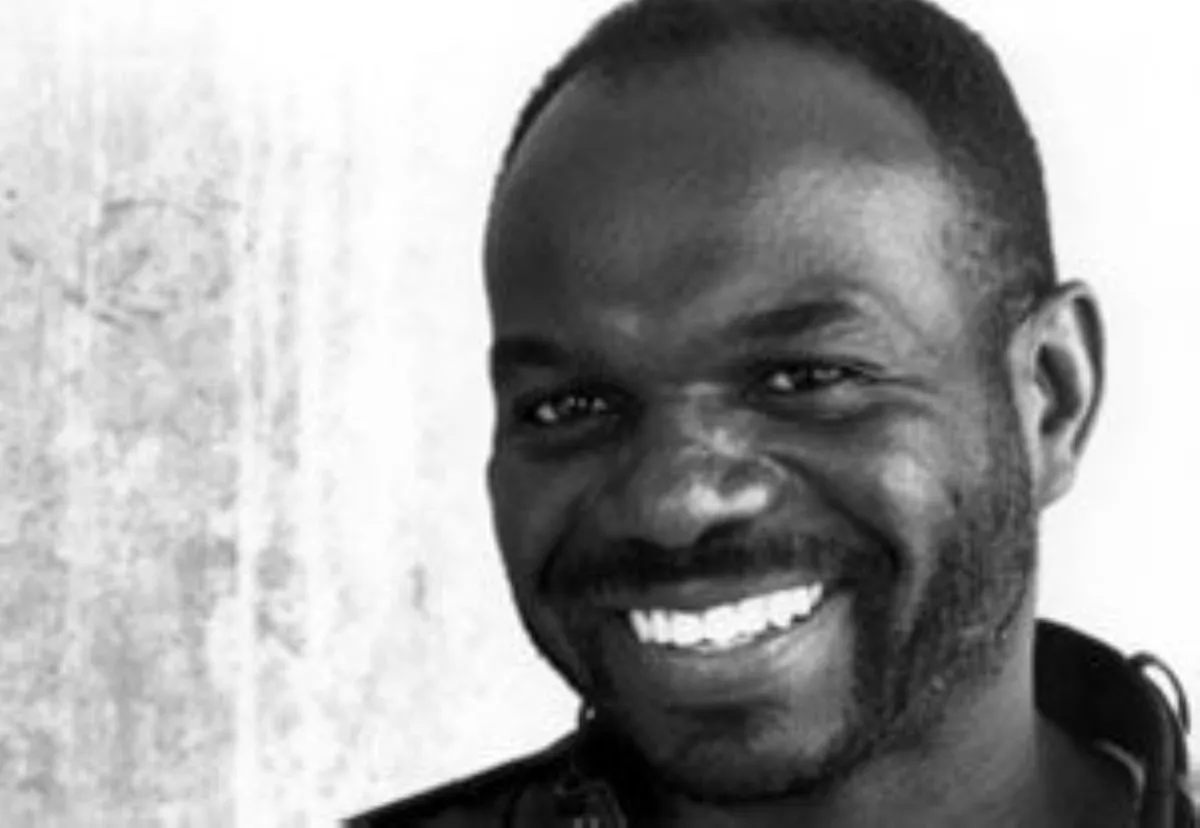 1.
1. Marlon Troy Riggs was a Black gay filmmaker, educator, poet, and activist.

 1.
1. Marlon Troy Riggs was a Black gay filmmaker, educator, poet, and activist.
Marlon Riggs produced, wrote, and directed several documentary films, including Ethnic Notions, Tongues Untied, Color Adjustment, and Black Is.
The Marlon Riggs Collection is open to the public at Stanford University Libraries.
Marlon Riggs was a child of civilian employees of the military and spent a great deal of his childhood traveling.
Marlon Riggs lived in Texas and Georgia before moving to West Germany at the age of 11 with his family.
Marlon Riggs was the son of Jean and Alvin Riggs and had a sibling named Sascha.
Later in his life, Marlon Riggs recalled the ostracism and name-calling that he experienced at Hephzibah Junior High School in Hephzibah, Georgia.
Marlon Riggs excelled at Nurnberg American High School, where he played football and ran track, and was elected President of the Varsity Club while only a sophomore.
Marlon Riggs performed a solo interpretive dance in the school's talent show depicting American slaves' experiences from Africa through emancipation.
From 1973 to 1974 Marlon Riggs attended Ansbach American High School's opening year in Katterbach, Germany.
Marlon Riggs was elected student body president at the military dependents school.
In 1974, Marlon Riggs returned to the United States to attend college.
Marlon Riggs became the youngest tenured professor in the arts and humanities at UC Berkeley.
In 1989, Marlon Riggs completed the landmark experimental documentary film Tongues Untied.
In 1988, while working both on Color Adjustment and Tongues Untied, Marlon Riggs was diagnosed with HIV after undergoing treatment for near-fatal kidney failure at a hospital in Germany.
In 1991, Marlon Riggs founded Signifyin' Works, a non-profit production company that produces films about African-American history and culture.
In 1992, Marlon Riggs directed the film Non, Je Ne Regrette Rien, in which five Black gay men who are HIV-positive discuss how they are battling the double stigmas surrounding their infection and homosexuality.
In 1993, Marlon Riggs received an honorary doctorate from the California College of Arts and Crafts.
Shortly after completing Color Adjustment, Marlon Riggs began work on what was to be his final film, Black Is.
Marlon Riggs wrote poetry, and Tongues Untied contains several of his poems about his life experiences as a Black gay man.
Marlon Riggs's writings were published during the late 1980s and early 1990s in various art and literary journals such as Black American Literature Forum, Art Journal, and High Performance as well as anthologies such as Brother to Brother: Collected Writings by Black Gay Men.
Marlon Riggs used his films to show positive images of African-American culture as well as those of physical and emotional love between Black men in order to challenge representations of African Americans and Black gay men in popular culture.
Marlon Riggs received a national Emmy Award in 1987 for Ethnic Notions.
In 1992, Marlon Riggs was awarded the Maya Daren Lifetime Achievement Award from the American Film Institute.
Marlon Riggs received the Frameline Award from the San Francisco International Lesbian and Gay Film Festival for his film Non, Je Ne Regrette Rien.
In 1993, Marlon Riggs received an Honorary Doctorate from the California College of Arts and Crafts in Oakland.
In 1996, a plaque with a picture of Marlon Riggs was hung inside of the building's lobby area.
In 2006, Marlon Riggs was inducted into the NLGJA LGBTQ Journalists Hall of Fame.
The ad was removed from television channels after Marlon Riggs successfully demonstrated Buchanan's copyright infringement.